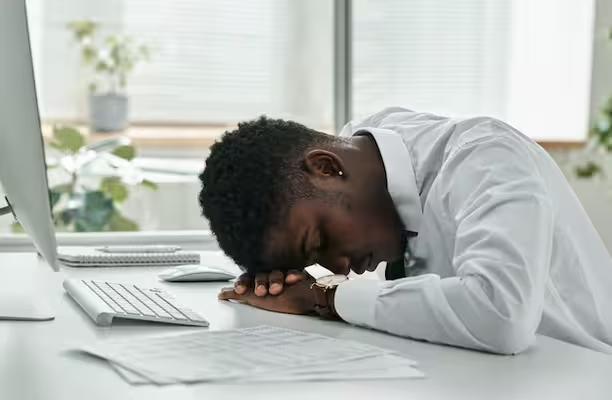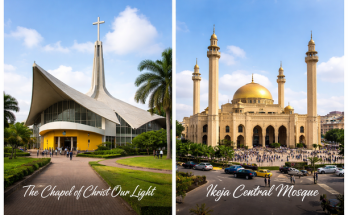By Chiagoziem Abosi
Edited by Ezennia Uche
In Lagos, sleep is a privilege.
By 6 a.m., buses under the Ikeja Bridge are already packed — some passengers scroll through their phones, others drift in and out of sleep, heads pressed against dusty windows. It’s barely sunrise, but for many Lagosians, the day began hours ago.
“I leave my house by 4:30 every morning,” said Tunde Adebayo, a civil servant who lives in Mowe but works on the Island. “If I sleep till 5, I’ll spend half my day in traffic.”
Across the city, from Ojota to Lekki, Lagosians are learning to live with exhaustion. Between endless traffic, long work hours, and constant noise, sleep has become a rare luxury — and it’s beginning to take a toll.
“We’re Always On The Move”
From traders in Ikeja Computer Village to bankers in Allen, everyone seems to be running on caffeine and stress.
“Sometimes I don’t sleep till 2 a.m. because I have to sew clothes for customers,” said Mama Sade, a tailor at Ogba. “By 5, I’m up again to cook for my children.”
Experts say this constant lack of rest can lead to health problems. Dr. Funke Akinyemi, a physician at the Lagos State University Teaching Hospital, explained:
“When you sleep less than six hours a night, your body starts to fight itself. It raises your blood pressure, weakens your immune system, and affects memory and mood.”
“Even When You Sleep, Lagos Won’t Let You”
The noise doesn’t help either. From honking buses to generators humming all night, silence is rare.
“My generator is my biggest enemy,” laughed Rita Eze, a hairstylist in Opebi. “I can’t sleep without light, but when the gen starts — forget it, my sleep is gone.”
Many people admit they can’t remember the last time they had a full night’s sleep. Some even joke that sleep is for the rich. But doctors warn that chronic sleep loss can make you age faster and even lead to heart problems.
Tips for Lagosians Who Can’t Catch a Break
Dr. Funke recommends a few small changes:
• Try going to bed earlier, even if it’s just 30 minutes sooner than usual.
• Reduce caffeine after 3 p.m.
• Use earplugs or listen to soft music to block out noise.
• Most importantly, take short naps when you can. “Every little rest helps,” she said.
For now, Lagos keeps moving — loud, restless, and relentless.
Its people keep pushing too, surviving on coffee, courage, and a few stolen moments of rest.
As one bus conductor at Ikeja put it with a weary grin, “Na money we dey find. Sleep fit wait, hunger no fit.”
But as the city races forward, one thing is clear: Lagos may never sleep — but Lagosians desperately need to.








